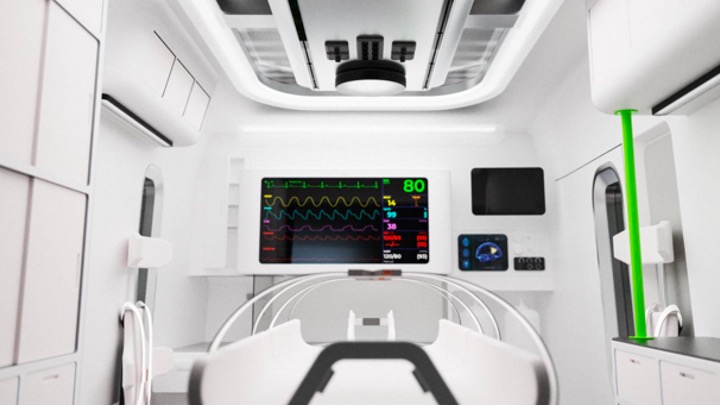
LEARNING OUTCOMES
After successfully completing this course, students are able to:
- Iteratively develop further an existing concept
- Plan and execute prototypes and their development of a conceptual design to a validated concept level, demonstrating a strong design intent.
- Perform assessment of a design in multiple dimensions, including e.g. manufacturability and sustainability impacts of conceptual decisions.
- Articulate and present designs and the respective validation studies.
- Reflect on the development path.
Credits: 9
Schedule: 26.02.2024 - 18.04.2024
Teacher in charge (valid for whole curriculum period):
Teacher in charge (applies in this implementation): Severi Uusitalo
Contact information for the course (applies in this implementation):
Severi Uusitalo
severi.uusitalo@aalto.fi (please priorize email)
050 486 7476
CEFR level (valid for whole curriculum period):
Language of instruction and studies (applies in this implementation):
Teaching language: English. Languages of study attainment: English
CONTENT, ASSESSMENT AND WORKLOAD
Content
valid for whole curriculum period:
The course has a lecture and workshop series, that supports the team design projects. The starting point is an existing design concept prepared prior to the course, which then is iteratively developed to more mature design, including testing. Prototyping is a method used to gather insights of the problem space. The different dimensions of complexity are discussed during the course, as are methods of addressing them, e.g. modularity in product architecture design.
applies in this implementation
This year, we will build on Fall 2023 Emerging Designs concepts and design further, and assemble, a prototype of AMRI ambulance in 1:1 scale. With the prototype, we will evaluate it with paramedics, or paramedics students. Supporting the work, we have arranged time from Antti Tanninen, paramedics lecturer from LAB university of applied sciences from Lappeenranta, for a few hours/week.
There is at least one excursion to a design consultancy applying 1:1 prototypes for furthering design. We also have visiting lecturers providing views to prototyping and evaluation means and methods. While this builds research skills of the students, the methods are designerly, i.e., more about gathering insights and turning propositions into conjectures and understanding, rather than aiming to create research output.
Prototyping involves both physical and digital means and initiative, ambition, and creativity is expected from the students. The prototyping takes place in a dedicated separate space next to Väre, so there is a studio for the project for the last four weeks of the course. This together with the smallish group size will generate a design team rapport for the course participants, developing and caring of which is expected also from all.
Assessment Methods and Criteria
valid for whole curriculum period:
Evaluation is based on active participation of the student to learning events and team project, assessment of the project and the report of it, including the reflection. Self-evaluation and peer evaluation is also used.
applies in this implementation
As the project is the same for all, it is challenging to have an individual assessment element. While the project and the team report of it (collaborated by all) is the primary output, reading material discussions, peer evaluation, and a self-reflection will be used for individual output assessment.
Workload
valid for whole curriculum period:
Total course workload 9 cr = 243 h
- 40 h contact teaching
- 160 h independent and team work
- 32 h independent reflection
- 1 h course evaluation
applies in this implementation
https://docs.google.com/spreadsheets/d/1cgfq1-4PH2nuUwfnByhZbsrdjKEOT0QOfCnnBeOoNP8/edit?usp=sharing
Tab: workload calculation
Open only to students admitted to the course.
DETAILS
Study Material
valid for whole curriculum period:
Will be informed in MyCourses for each year.
applies in this implementation
Reading materials include:
- C-K theory by Hatchuel and Weil
- Prototyping, and prototyping for services
- Mixed Reality-prototyping
- Qualitative study practices, including analysis (coding from transcribed videos).
Substitutes for Courses
valid for whole curriculum period:
Prerequisites
valid for whole curriculum period:
SDG: Sustainable Development Goals
12 Responsible Production and Consumption
FURTHER INFORMATION
Further Information
valid for whole curriculum period:
Teaching Language : English
Teaching Period : 2022-2023 Spring IV
2023-2024 Spring IVEnrollment :
Registration in Sisu. Minimum number of students: 5 Maximum number of students: 16
Priority in order of:
- CoID
- DoD MA programmes
- other
Priority order to courses is according to the order of priority decided by the Academic committee for School of Arts, Design and Architecture https://www.aalto.fi/en/services/registering-to-courses-and-the-order-of-priority-at-aalto-arts
applies in this implementation
The course is primarily for students taking part in Emerging Designs 2023. If you didn't, please contact prof Severi Uusitalo.
Details on the schedule
applies in this implementation
https://docs.google.com/spreadsheets/d/1cgfq1-4PH2nuUwfnByhZbsrdjKEOT0QOfCnnBeOoNP8/edit?usp=sharing
Open only to students admitted to the course.
